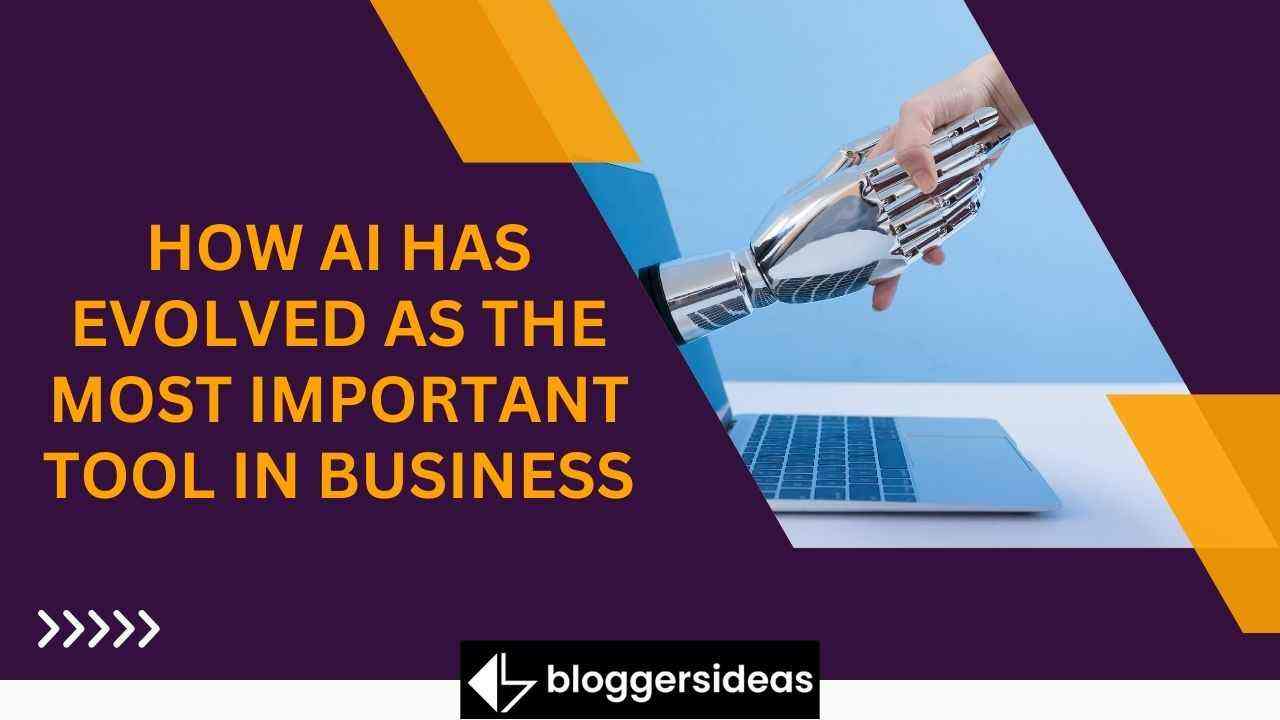Artificial intelligence (AI) has been one of the most talked-about topics in business for many years now. Some believe that AI is the future of business, while others are more cautious about its potential impact.
However, there is no denying that AI is already playing a significant role in businesses around the world and is only going to become more important in the years to come.
In the past, AI was mostly used for simple tasks such as data entry or analysis. However, thanks to advances in technology, AI can now be used for much more complex tasks such as customer service, marketing, and even product development.
Businesses are starting to realize the potential of AI and are investing more and more in this technology.
One of the most important uses of AI in business is customer service. AI-powered chatbots can provide 24/7 customer support, which is a huge benefit for businesses. Chatbots can also be used to upsell products and services to customers.
AI is also being used to create more personalized marketing campaigns. By analyzing customer data, AI can identify patterns and trends that can be used to target specific customers with personalized ads and content.
AI is even being used to develop new products and services. By analyzing customer data and market trends, AI can help businesses create new products and services that are more likely to be successful.
AI is clearly becoming the most important tool in business. As AI technology continues to develop, businesses will increasingly rely on AI to help them operate more efficiently and effectively.
Integrating AI Into The Workforce
Most businesses today are looking for ways to improve their efficiency and bottom line. One way to do this is by integrating artificial intelligence (AI) into the workforce.
By automating tasks and processes, businesses can free up employees to focus on more important tasks.
There are many benefits to integrating AI into the workforce. For one, it can help improve efficiency and accuracy. It can also help to identify and correct errors, as well as automate repetitive tasks.
Additionally, AI can help businesses keep up with the ever-changing landscape of customer needs and preferences.
Despite the many benefits, there are some challenges that need to be considered when integrating AI into the workforce. One challenge is the fear of job loss.
Some people are concerned that AI will automate jobs and put humans out of work. Another challenge is the lack of understanding of how AI works. This can lead to confusion and mistrust among employees.
Integrating AI into the workforce can help businesses improve their efficiency and bottom line. However, there are some challenges that need to be considered when doing so. These challenges include the fear of job loss and the lack of understanding of how AI works.
When integrating AI into the workforce, businesses need to consider these challenges and find ways to overcome them. One way to overcome the challenge of job loss is by providing training to employees on how to use AI. This will help to ensure that they are able to adapt to the changing landscape of work.
Additionally, businesses need to find ways to educate employees about how AI works. This will help to build trust and understanding among the workforce.
By overcoming these challenges, businesses can fully realize the benefits of integrating AI into the workforce.AI can help businesses automate tasks and processes, improve efficiency and accuracy, and keep up with the ever-changing landscape of customer needs and preferences.
However, businesses need to consider the challenges of job loss and the lack of understanding of how AI works when integrating AI into the workforce. Overcoming these challenges will help businesses fully realize the benefits of integrating AI into the workforce.
How AI Is Transforming Business As We Know It
The potential of artificial intelligence (AI) has been hyped for years, but now it’s finally starting to deliver on its promise.
Businesses across all industries are using AI to automate repetitive tasks, make better decisions, and improve their customer experience. Here’s a look at how AI is transforming business as we know it.
1. Automation
One of the most obvious ways AI is transforming business is through automation. By automating repetitive tasks, businesses can free up their employees to focus on more strategic work. For example, many customer service departments are using chatbots to handle simple customer queries, freeing up human agents to handle more complex issues.
2. Improved decision-making
AI is also helping businesses make better decisions. By analyzing large data sets, AI can identify patterns and trends that humans might miss. This insight can be used to make better decisions about everything from pricing to product development to marketing.
3. Improved customer experience
Another way AI is transforming business is by improving the customer experience. AI-powered chatbots and virtual assistants can provide 24/7 support, answering customer questions and helping them resolve issues. And by personalizing the customer experience, businesses can create deeper relationships with their customers.
4. New business models
AI is also creating new opportunities for businesses to generate revenue. For example, businesses can now sell data that they’ve collected about their customers. And, as AI gets better at creating and analyzing content, businesses will be able to sell more personalized and targeted content to their customers.
5. Increased competition
AI is also changing the competitive landscape for businesses. As AI becomes more commonplace, businesses that don’t use AI will be at a competitive disadvantage. And, as AI gets better at automating tasks and making decisions, there will be fewer opportunities for businesses to differentiate themselves on these fronts.
AI is transforming business in a number of ways, from automation to improved customer experience. As AI becomes more commonplace, businesses that don’t use AI will be at a competitive disadvantage.
Quick Links:
- Ways AI Can Help Small Businesses to Scale Up
- Where is Artificial Intelligence Used Today? Powerful Examples Of Artificial Intelligence In Use Today
- What is the Difference Between Artificial Intelligence (AI) and Machine Learning
Conclusion- AI Has Evolved As The Most Important Tool?
The AI industry is booming and it’s not hard to see why. With businesses of all sizes searching for an edge in a competitive market, the ability to harness AI-powered automation has become essential.
We’ve seen how AI can help you streamline your processes, cut costs, and boost your bottom line. But as with any new technology, there are always challenges to overcome.
Also Read:
- Check out Jasper AI Free Trial
- Jasper AI Coupon Code
- LeadPages vs Instapage
- Leadpages vs Unbounce
- Best AI Writers, Content Writing Softwares
- Best AI Copywriting Tools
- Best AI Tools to Automate Your Facebook Ads
- Content Studio Pricing
- Jasper AI Review in Detailed
- What Are The Best Article Spinning Tools






